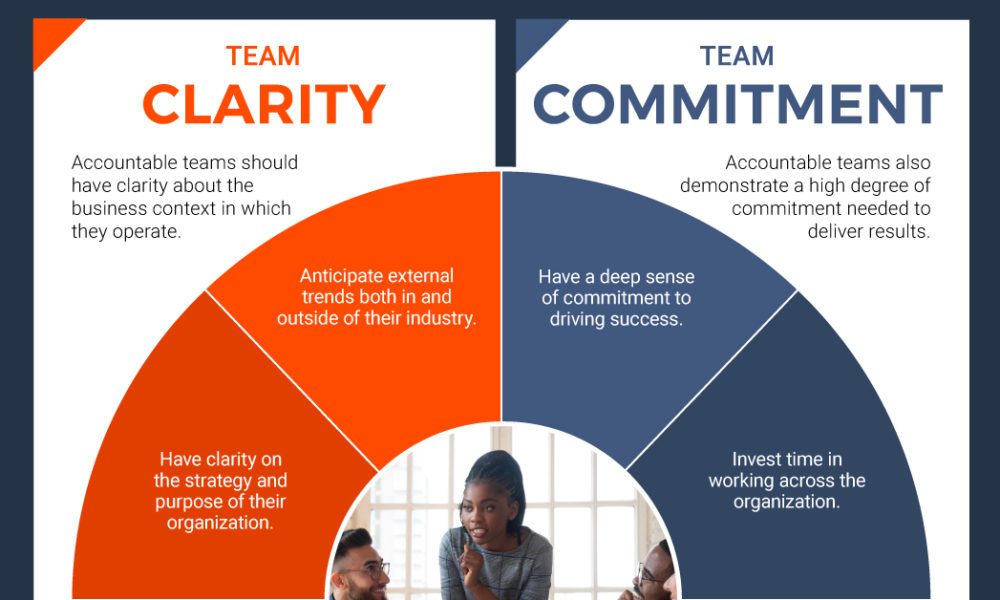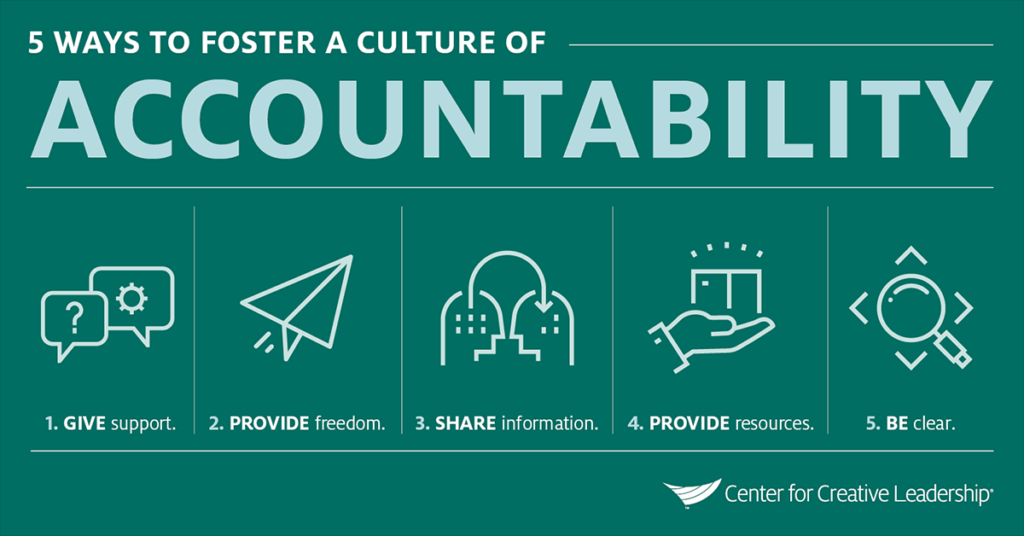Unlocking the secret to exceptional teamwork: Discover the 5 power-packed strategies that guarantee accountability and unleash unstoppable success!

Inhoudsopgave
- Establishing Clear Goals and Expectations
- Open communicatie stimuleren
- Creating a Culture of Ownership
- Implementing Accountability Tools and Systems
- Leading by Example
- Promoting Collaboration and Teamwork
- Handling Accountability Challenges
- Conclusie
Hold Your Team Accountable: 5 Strategies for Success
Accountability is the backbone of any successful team. When team members take ownership of their actions, meet deadlines, and fulfil their responsibilities, the team becomes more efficient and productive. On the other hand, a lack of accountability can lead to missed deadlines, reduced quality of work, and, ultimately, a disengaged team.
In this article, we will explore five essential strategies to increase accountability within your team, allowing you to foster a culture of ownership and responsibility.
Establishing Clear Goals and Expectations
One of the primary reasons for a lack of accountability in a team is the ambiguity surrounding goals and expectations. Without a clear understanding of what needs to be achieved and individual responsibilities, team members may work in different directions or fail to deliver on time.
To remedy this situation, define and break team goals into manageable tasks. Communicate the specific expectations for each team member, including deadlines and desired outcomes. By setting measurable targets, everyone will clearly understand what they need to achieve, improving overall accountability.
Open communicatie stimuleren
A team without open communication is like a ship without a compass. When team members feel comfortable sharing their thoughts and concerns, it fosters a culture of transparency and trust, which is essential for accountability.
Establish an environment that encourages open dialogue, where team members can freely express their thoughts and ideas. Regularly set aside time for team meetings, check-ins, or brainstorming sessions to allow individuals to voice concerns, ask questions, and provide feedback.
Implementing effective communication channels and tools is also crucial. Utilize project management software, instant messaging platforms, or collaborative tools that facilitate seamless communication and ensure everyone stays connected and well-informed.
Creating a Culture of Ownership
Accountability begins with a sense of ownership and responsibility. When team members feel that their contributions matter and they have a stake in their success, they are more likely to take accountability for their work.
Instil a sense of ownership by involving team members in decision-making processes and assigning tasks that align with their strengths and interests. Encourage everyone to take ownership of their work and to strive for excellence. Recognize and reward accountability and initiative by publicly acknowledging individuals who consistently demonstrate ownership and deliver exceptional results.
Implementing Accountability Tools and Systems
To increase accountability, it is essential to have systems that promote transparency, track progress, and identify potential bottlenecks. Utilize accountability tools, project management, and okr software that allow you to assign tasks, set deadlines, and monitor their completion.
Create a system for tracking progress, whether it’s through regular check-ins, status reports, or project dashboards. This way, team members can see their progress as well as the progress of their peers. Regularly review and discuss these metrics during team meetings to ensure everyone knows individual and collective responsibilities and progress.
Leading by Example
Leaders play a crucial role in shaping the team’s culture and fostering accountability. To encourage accountability among team members, leaders must lead by example. This means taking responsibility for their actions, demonstrating transparency, and admitting mistakes when necessary.
Show your commitment to accountability by providing constructive feedback and support to team members. Regularly recognize and acknowledge individual efforts and guide those needing assistance. By modelling responsibility in your actions, you create a standard for the rest of the team to follow.
Promoting Collaboration and Teamwork
When individuals work together towards a common goal, it strengthens the sense of accountability within the team. Encourage collaboration and cross-functional cooperation by fostering a team-oriented environment where everyone supports each other.
Assign tasks that require different skill sets and expertise, encouraging team members to collaborate and learn from one another. Provide opportunities for team-building activities, workshops, or training sessions that allow individuals to bond and develop trust. Emphasize the importance of teamwork and highlight how it contributes to the team’s overall success.
Handling Accountability Challenges
Increasing accountability within a team is not without its challenges. It is essential to identify potential roadblocks and address them promptly and fairly. Common challenges may include a lack of clarity, unrealistic expectations, or individual resistance to change.
Regularly assess the team’s progress and identify any accountability issues or areas of improvement. Engage in open conversations with team members to uncover any underlying concerns or obstacles preventing them from being accountable. Collaboratively develop strategies to overcome these challenges, ensuring everyone feels supported and empowered to contribute their best.
Conclusie
Building a culture of accountability within your team requires deliberate effort and a commitment to fostering a sense of ownership and responsibility. By establishing clear goals and expectations, encouraging open communication, creating a culture of ownership, implementing accountability tools and systems, leading by example, and promoting collaboration, you can hold your team accountable, increasing productivity and success.
Remember, excellence is achieved through individual efforts and the collective commitment to holding each other accountable. Start implementing these strategies today and witness their positive impact on your team.

